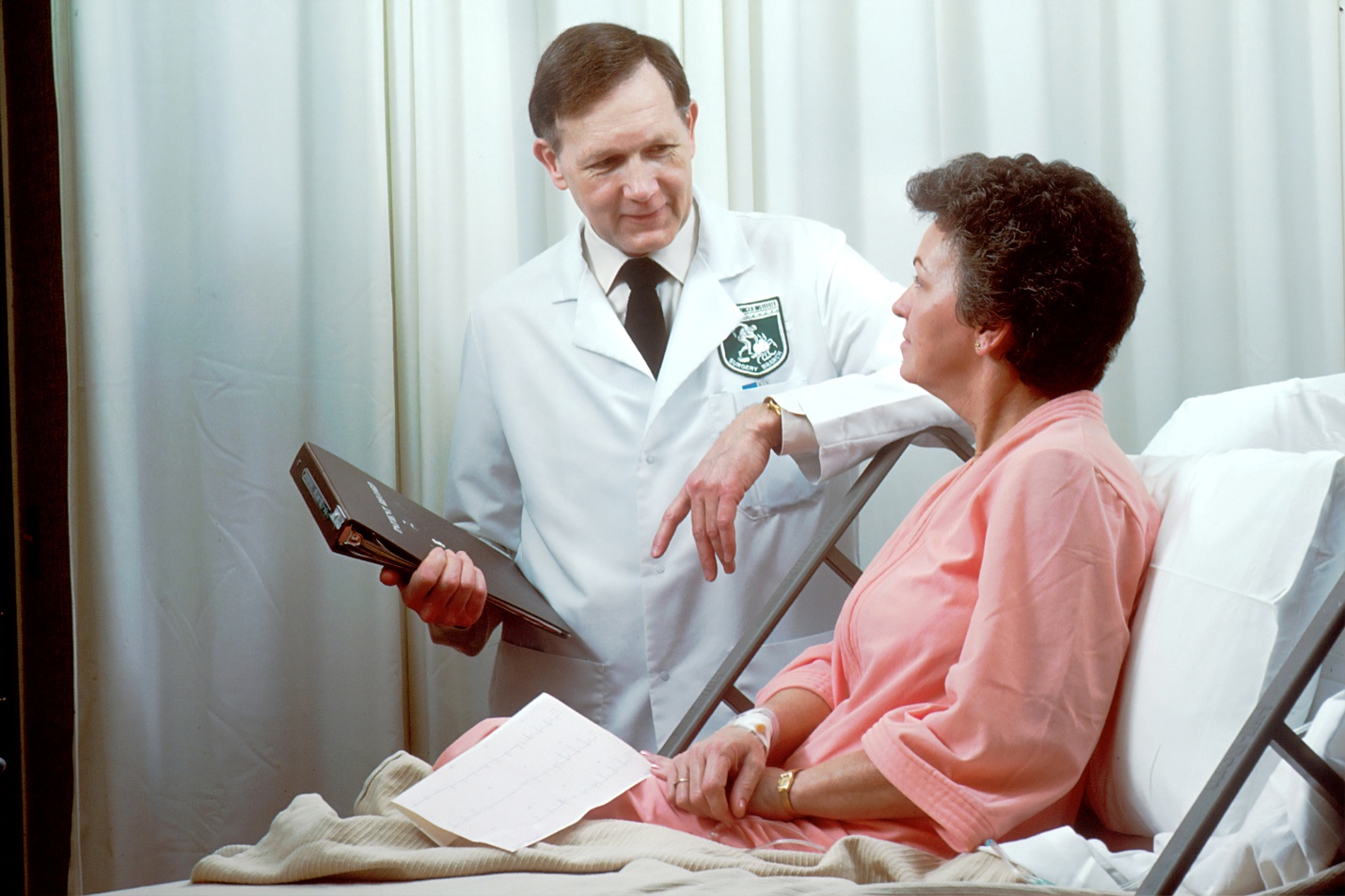Receiving news that you have been diagnosed with a terminal illness is life-changing. At the moment, you may have a million different emotions and questions flooding through your head. That being said, the most important thing to focus on as you move forward with this news is what your next steps will be. But what exactly do you do next after this type of diagnosis? What should you be thinking about as you look toward the future? If this has been a major point of concern for you, here are five things to think about when you’ve been diagnosed with a terminal illness that’ll help you dive deeper into what comes after such a diagnosis.
1. How am I going to afford my cancer care?
One source of anxiety and stress for many with a terminal cancer diagnosis is the cost of care. Health care for cancer can strain your finances, even if you do have financial freedom as well as plenty of money in your savings or a great health insurance policy. If you’re concerned about affording your medical expenses, what financial resources should you turn to when it comes to paying for such services?
- Talk to your health insurance provider: The first step to take is to talk to your health insurance company. As a policy owner, it’s important to know how far your insurance goes, what it’ll pay for and what it won’t pay for, and how much support you’ll be getting throughout your specific care plan. Understanding what you can afford and where you may fall short will help you plan more effectively for the future.
- Ask for a payment plan or alternative financial plan: If you anticipate that you’ll be paying far more than you can afford, speak with your healthcare provider about potential payment plans or other financial options that can reduce the immediate cost and help you pay your bills over time. You may be able to find support that otherwise wouldn’t have been known to you once you ask!
- Reach out to charitable organizations that may be able to help you with your medical bills: Financial assistance can be lifesaving if you’re struggling financially. Set aside some time to look for local resources that are well-known for helping cancer patients with a terminal illness receive the support they need. If you’re having trouble finding insurance, or are even struggling with your living expenses, there may be government assistance you can file for as well.
- Consider emergency options for your financial needs: Although not as discussed as some of the financial resources above, there are emergency resources you could turn to if you need immediate access to funds. One such example is a viatical settlement. A viatical settlement refers to the purchase of a life insurance policy by a third party, for which the seller of that’ll receive a lump sum payout less than the overall death benefit of their policy. For those who no longer need their life insurance policy, this can be a great option that can provide them with the assistance that they need to take care of their chronic illness. That said, you need to make sure that you work with a reputable viatical settlement company that can provide you with the highest offer, like American Life Fund viaticals. If you’re already worried about chronic care management and how much it’ll cost, consider a viatical settlement.
While thinking about your finances can be anxiety-inducing, there are plenty of resources out there to help you better manage your medical bills as you care for your chronic illness. The main points provided above will serve to point you in the right direction as you navigate your illness.
2. How do I cope with the overwhelming emotions stemming from this diagnosis?

Receiving a cancer diagnosis will affect everyone differently. For some, they may be able to work through their emotions with relative ease. Others, however, may find it more difficult to cope, even as time goes by. Fortunately, hope and compassion still exist in the world. Some great ways to keep your positivity high and find healthy coping mechanisms are to keep in contact with your close friends and family, consider joining a local support group, or even reach out to a counselor in your area who can help you in a professional capacity.
You may also want to look for alternative ways to handle these intense emotions. One example of something that many turn to for support when they’re feeling burnt out is cannabidiol (CBD). CBD is a natural substance derived from the hemp plant that’s purported to have a wide variety of benefits that may provide you with a relaxing effect. How? Inside each of us exists a system of receptors known as the endocannabinoid system that’s designed to achieve homeostasis. It’s believed that the cannabinoids found within hemp, such as CBD or tetrahydrocannabinol (THC) can bind to these receptors to produce various effects.
Of course, there are a couple of concerns that some may have when using CBD. The main concern that many share is how CBD will impact them. They may associate CBD with the effects that come with smoking a cannabis flower. The truth? Unlike THC, CBD from hemp lacks psychoactive effects, which is another plus of the product. Additionally, CBD is legal under federal law due to something known as the Farm Bill, which has allowed for the legalization and regulation of hemp products containing less than 0.3 percent THC.
You’ll find that CBD hemp is quite flexible as well, producing a wide variety of hemp products like CBD hemp flowers (along with pre-rolls and joints), CBD tincture oils, CBD gummies, CBD extracts (such as CBD isolate or full-spectrum with terpenes, flavonoids, and trichomes for the entourage effect), and other topicals that use CBD oil. There are also similar cannabinoid products like cannabigerol or CBG flower or cannabinol (CBN) oil that may be worth looking into.
That said, trying CBD for the first time and being able to enjoy the benefits of CBD relies on choosing the right vendor. One excellent company to consider is Plain Jane. Plain Jane is a CBD company that aims to provide the best hemp flower for its customers, sourcing their CBD-rich hemp flowers locally, providing a wide variety of hemp flower products at affordable prices, and allowing their customers to experience a wide variety of other CBD products along the way, whether that be accessories like dry herb vaporizer products or a batch of CBD bud joints wrapped in oil and kief. Some popular CBD strains you may be interested in trying include Sour Space Candy, Hawaiian Haze, Elektra, Lifter, and Special Sauce (all of which offer different levels of potency, flavors, and scent experiences for your first encounter with top-shelf hemp flower).
If you want to test CBD but are looking for the best offer, consider turning to Plain Jane to try out new hemp strains that may be beneficial for you.
3. What will life look like from here on out?
Beyond the immediate consequences of your diagnosis, you’ll need to think about how the rest of your life will look like as this disease progresses. This can mean asking questions like:
- What are the possible complications? How will late-stage cancer affect me and how I live my life?
- What can I do now to live the highest quality of life moving forward?
- What medications will I need to take? How will these make me feel? What will I be able to do?
- As symptoms worsen, I will need chronic care management. What type of care team will I need to be in good hands and how is this accomplished?
- How will my insurance impact my care? For example, if you have medicare, what does your eligibility look like for care centers and programs near you?
Although it can be difficult to think of these types of things, preparing for the future will allow you to paint a more realistic picture of what life will be like so that you can plan it out now. Make sure to speak with your doctor to better understand what to expect both now and in the future, and take your doctor’s advice to help you get prepared.
4. How do I prepare for the future? What does this entail?

End-of-life planning can be extensive, which is why it’s important to consider this now when you’re facing a life-threatening illness and develop a plan of action. Some items to focus on moving forward include:
- Creating and updating your will
- Granting rights over your healthcare to someone who can care for you
- Figuring out the best option for the care of dependents (children, elderly parents, etc.)
- Getting together important documents like prenuptial agreements, marriage certificates, or even citizenship documents (especially important if you were born outside of the United States)
- Assessing and listing all of your assets
- Coming up with funeral arrangements and wishes
This can be another overwhelming part of the process, but it’s vital that it’s taken care of as soon as possible while you’re still in good health and able to make these decisions on your own.
5. How do I make peace with this diagnosis?
Another major question that crosses the minds of those with a terminal illness is, how do I make peace with this new reality? While many will find peace in their own way, you may wish to reconnect or make amends with people in your life, spend some time reflecting on what your diagnosis really means, and even pursue some things you’ve always wanted to do that you’ve never gotten to. This may take some time to achieve, but there are ways to acknowledge and accept your diagnosis in its entirety.
Coping with a terminal illness is overwhelming on its own. However, there are certain things that you need to think especially hard about in order to ensure that you move forward more successfully. To help you get started, use the five questions above for inspiration as you deal with this diagnosis on your own time.
Leave a Reply